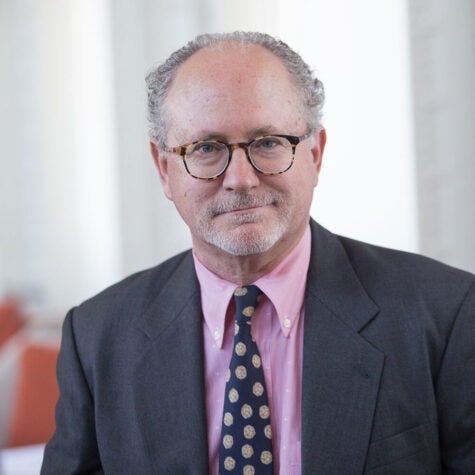Carnot on the Road… and Where that Road Leads Us
This week, the Kleinman Center’s executive and communications teams leave for New Delhi to complete our 2018 Carnot Prize presentation to Indian Minister of Coal and Railways Shri Piyush Goyal, which was interrupted last fall by the Amritsar tragedy. Travel puts me in a reflective mood and this morning I want to offer a sequence of open-ended thoughts for your consideration.
Approximately 90 percent of human-driven greenhouse gas emissions come from burning fossil fuels and cement production, which means that climate policy is largely energy policy. When we discussed the Carnot Prize last fall, the key message was that burning coal in India is contextually quite different than burning coal in the United States. Our “teaching moment” at that time was that nations have common but importantly differentiated responsibilities in the energy transition needed to avoid the worst impacts of climate change. Burning coal in India helps reduce poverty now, while burning coal in the U.S. protects wealthy owners while stranding workers.
As we reconvene for the Carnot Prize ceremony in India—just three months later—another teaching moment stands out. India appears to be turning from coal more rapidly than many analysts initially thought. The pipeline of pre-construction plans for new coal-fired power plants in India has shrunk from 218GW in 2015 to 63GW today. More important, less than 2GW of new coal capacity was proposed in India in 2018. While India maintains almost 15 percent of the world’s installed coal and will continue to burn coal for decades, it appears that it may be approaching peak coal very soon.
It can be hard to keep pace with all of the good news in the world of energy and climate policy. Yet despite positive signs about the energy transition to clean power, it is also true that we are failing to achieve our goals for emissions reductions. To have a reasonable chance at meeting the Paris target of limiting global warming to 2°C in 2100, we must limit global emissions to around 47 GtCO2e in 2025 and 39 GtCO2e in 2030. Current pledges to reduce emissions fall short by 6 to 9 GtCO2e for 2025 and 15 to 18 GtCO2e for 2030 (and the gap is much larger for current policies rather than pledges).
And because we have failed for so long to change our energy and other climate-damaging systems, we are running out of options. In the last Assessment Report by the UN’s Intergovernmental Panel on Climate Change, issued in 2014, 101 of the 116 scenarios for meeting the 2°C goal required the use of carbon dioxide removal technologies that do not yet exist. We have painted ourselves into a corner in which we are gambling the future economy and perhaps our very survival on the invention of technologies capable of saving us.
These future technologies could unfold in very different ways. Which do you find more likely: that we will invent technologies capable of saving 8 thousand plutocrats with a colony on Mars or saving 8 billion humans with a livable planet?
And it is precisely because of this pending nexus of invention and ethics, of science and humanities, that I suggest universities like Penn must redesign ourselves to rise to the challenges of climate change and its solutions. We face problems of physics and philosophy that will make the Manhattan Project look simple. These challenges defy our 19th Century departmental and disciplinary boundaries. We need new platforms to foster and sustain collaborations across those boundaries that are capable of accelerated discovery and deployment of solutions to the existential problems we face now.
The ability to devote ourselves to these problems by shedding old boundaries and comfortable habits rests entirely in our hands. And so does the responsibility.
